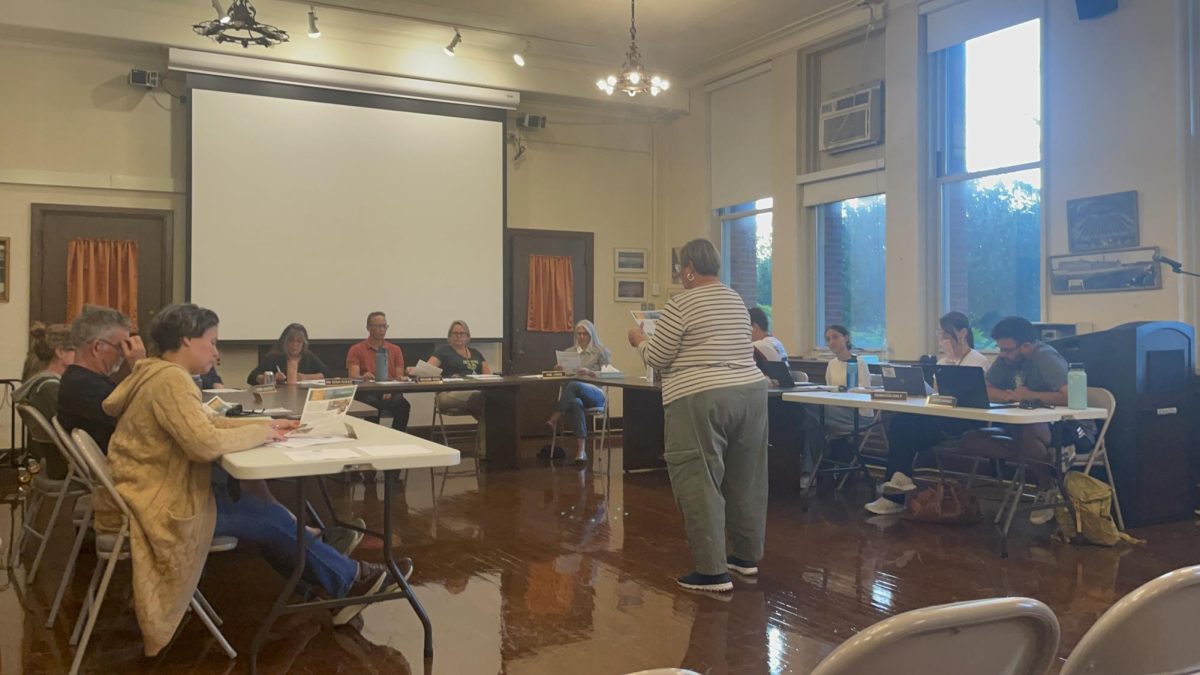It’s a crisp and chilly fall morning as students rush to pile off city buses, scrambling to get into the school building with a sense of disjointed urgency due to their chronic tardiness.
This scene is very common for students who take public transportation to school. According to the CTA performance dashboard, in the month of August 2025, buses garnered eight extra minutes of waiting time on average. That amount of time can be crucial for students rushing to get to class, and even more so with Lane Tech high school’s new demerit policy.
The policy, just introduced this school year by the attendance office, registers a tardy as one demerit rather than half a demerit like in previous years.
The change seemed to have stirred negative responses, with sophomore Audrey Terry expressing that she is “not a fan” of the new policy. “It doesn’t make sense that skipping is the same punishment as just being like, a minute late or 30 seconds late,” She said.
Terry takes the CTA to school most days. “Sometimes there can be problems with it, like if a bus is late, or a train is messed up,” said Terry, who described getting tardies when these events occur.
When asked about the efficiency of public transport getting her to school on time, she said that CTA tends to be a bit erratic.
“There have been times where my train didn’t show up, or my bus didn’t show up for an extra 30 minutes, and I got to school at like, 8:28, 8:30,” Terry said. These factors might not make it the smoothest ride to school.
However, ease seemed to be a consideration taken when the policy was changed. . “This is really the easiest way for students to keep track of demerit count,” said Gaby Escobar, the director of culture and climate at Lane Tech, referring to the policy.
Escobar described how in previous years, the policy of obtaining a half demerit caused a lot of confusion. “Students had a difficult time tracking their demerits, and it was a lot of work for the attendance office to go out and calculate.” Even with student backlash Escobar says, “You know, we really try to be fair, and this was really the easiest way for students and parents to keep track of demerit count.”
Though, one teacher has taken a sympathetic view on different conditions that might make a student late. “It’s just being understanding in what the situation is,” said Soshana Levy, a first period trigonometry teacher at Lane Tech.
She expressed her opinions on tardiness to her class due to the CTA. “Chicago public transportation is always unreliable,” Levy said. “But I always talk to the students and want to get their opinion and thoughts on what’s happening and why that’s happening.”
However, a student who is chronically tardy might miss out on important aspects of their class, Levy said.
“I feel like they’re always maybe a few steps behind,” She said. “And so that definitely hurts — they don’t know when the next quiz is or what’s going on.”
Students also have the ability to set “goal weeks,” where they can erase their demerits if they are on time for an entire school week. “I think it’s pretty easy to set a goal week,” Terry said. “You know, they send it out in a student newsletter every day.”
Goal weeks to Levy seem to be a solution to the disruption of the policy, and whether or not the policy will be positive. “Now, I think in the scheme of things, it won’t really matter,” she said, referring to the new policy. “Especially if students have already filled out that form to get rid of their demerits. She continues. “If they’re comfortable filling out that form, if they know how to fill out that form, then I don’t think changing it from a half point to a point is going to change anything.”
Even so, the policy seems to be a positive motivating factor for students. “I feel like this year, these students were more willing to participate in setting goal weeks, or were more motivated to be on top of their attendance.” Escobar said.
There has yet to be any physical change in tardiness data as of now; however Escobar says she is hopeful. “It’s just motivating students to really track their attendance and to make sure that they’re catching being marked absent.”




